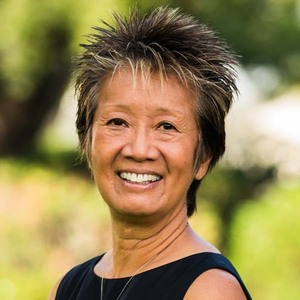Talbot School of Theology recently had the opportunity to have a conversation about its position on âcomplementarianism.â The word is in quotation marks, as recent scholarship has questioned the helpfulness of using the terms âegalitarianâ and âcomplementarianâ to define positions. For the sake and brevity of this article, however, weâll use those terms.
Itâs good to revisit and articulate Talbotâs position to a student body that may not be aware of the âwhyâ behind this position.
In the past, it has been far too easy to load these words with emotions and experiences that keep the true meaning of words from being discussed openly and in a non-defensive posture. Here are a couple examples to counter the negative stigma that often comes with âcomplementarianâ:
The word âegalitarianâ sounds much like the word âequal.â Who doesnât want equality? A problem can arise, however, when egalitarian is equated with equality, and thus any position other than an egalitarian one would assume a lack of equality.
The word âcomplementarianâ is often associated with âtraditional,â which is a position of its own with associated negative connotations.
One of the seven values of Talbot School of Theology is to uphold academic excellence no matter the audience or venue, so one should start with Godâs Word.
Christ followers are called to hold to the equality of men and women (Gal. 3:28). All people are made in Godâs image, and therefore every person is to be valued, respected and called to manifest Godâs Spirit in their lives, individually, mutually and corporately. When God created âČč»ćČčłŸ,â humanity, he created them, male and female. Together, they were commissioned to reign and rule in a manner that reflected Godâs design and kingdom ways. The creation of Adam and then Eve was unlike any other work of creation. God did not speak Adam into being as he did with the rest of creation. And when God first created man, and then the woman from the man, he determined an order that is unique to humanity. The Apostle Paul echoes this order (1 Timothy 2:13). Before the Fall of humankind, Adam and Eve co-labored and enjoyed intimate communion with God. Rebellion characterized the Fall and the human heart ever since.
It took me six years to finish a two-year program in Bible Exposition at Talbot, so I spent a good amount of time there as a student. I chose to write a masterâs thesis on 1 Timothy 2:9-14, a key passage on gender relationships in the church.
In this passage, Paul describes the church with family relationships in mind. He places the creation event as a universal truth that transcends time and place. Without the universal, it would be easier to limit Paulâs words to the localized context or occasion, focusing on the social world of first-century Ephesus.
Some have argued that Eve is mentioned merely as an example by virtue of her being the first woman, or that wealthy women in Ephesus felt entitled to be leaders in the church due to their social status. Paul inserts the creation event and the order of the creation of Adam and Eve and Eveâs succumbing to the temptation to rebel against Godâs ordinances. Equality is not questioned; rather, Paul is addressing the order of creation and the type or manner of authority.
Letâs take a second look at context and observe something rarely considered. Donât miss what Paul does here. He argues for a reversal from the cultural perspective in Ephesus.
Steeped in Roman culture, as heads of households, men ruled with absolute power and authority. Little consideration was given beyond his own wants and desires as the head of the family. The rest of the family was subjugated to his rule; they were to sacrifice for him. In this context, Paul reveals Jesusâ radical view of the church and family.
From the Genesis account, Godâs purpose is for man and woman to become one flesh, and Adam is called to leave and cleave (Gen. 2:24). As the head, the man must guide and support the woman as she partners with him to accomplish Godâs purpose of unity. The âheadâ is now to initiate love in sacrificial, self-denying ways for the benefit and edification of others. The body is to be loved. The complementarity is evident.
From Godâs perspective, the type of penultimate leadership of the church family would be the self-sacrificial love for the good of the body, as Christ loved the church (Eph. 5:25-27). Leadership is not about dominance or power as the world would acquire it (Mark 10:42-45) but is exercised through sacrifice. Godâs design for his church was to be a family, and its relationships are to reflect those of His family. Spirit-led relationships prevent the threat of hypocrisy and duplicity.
Though there have been, are, and continue to be poor examples of each of these positions, that does not, should not, and must not diminish the truth found in Godâs character, design and Word.
Men and Women at Talbot School of Theology articulates our view at Talbot and it lays out this beautiful scriptural vision. The statement does not use the word âcomplementarian,â but sticks to the biblical language of headship, in addition to affirming that, âAt Talbot, we joyfully train men and women students for the callings affirmed by their churches.â
As a Talbot faculty member and one of the deans, I know we all share a desire to uphold Godâs Word and Godâs view on menâs and womenâs roles in marriage and in the church. We are committed to present our own and differing views, and those who hold those views, with clarity, fairness and respect.
 șÚÁÏÀúÊ·
șÚÁÏÀúÊ·


.jpg)

